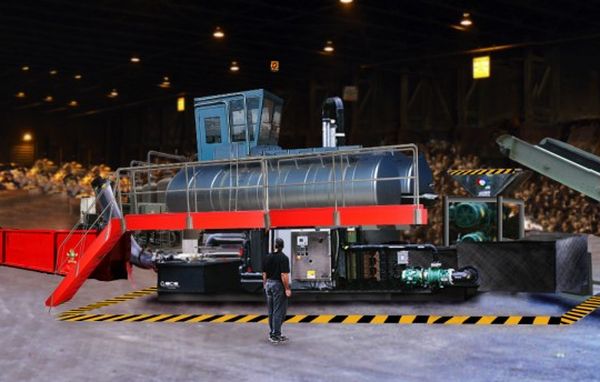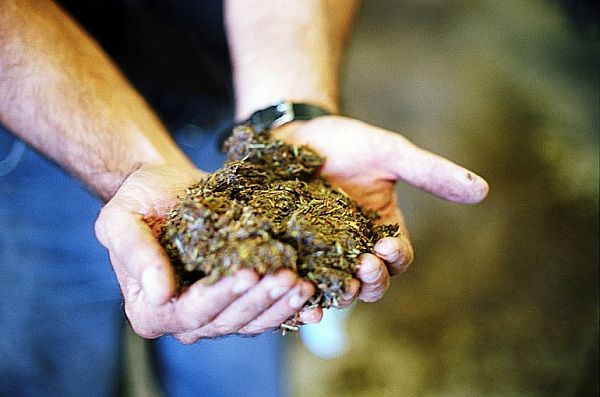 Many cities around the world have huge composting machines that convert organic matter, previously segregated at the time of trashing, into fertile soil. Even though these machines are very expensive and help in the reuse of waste, they still leave a large carbon footprint owing to their size which is extremely bulky. Such composting machines normally take anything between 2 weeks to even a year to complete the process of composting. However, Ecologico-Logic – a company based in Nevada – has come up with a solution to these drawbacks with their prototype of ‘The Muncher’. This machine is not only comparitively smaller in size but has the capability of converting organic mass into liquid compost in less than 60 minutes!
Many cities around the world have huge composting machines that convert organic matter, previously segregated at the time of trashing, into fertile soil. Even though these machines are very expensive and help in the reuse of waste, they still leave a large carbon footprint owing to their size which is extremely bulky. Such composting machines normally take anything between 2 weeks to even a year to complete the process of composting. However, Ecologico-Logic – a company based in Nevada – has come up with a solution to these drawbacks with their prototype of ‘The Muncher’. This machine is not only comparitively smaller in size but has the capability of converting organic mass into liquid compost in less than 60 minutes!
The unique waste digestion mechanism of The Muncher is patented and commences its work by shredding organic waste and reducing the volume of the same with the help of aerobic microbes and a chemical treatment that assists in breaking the waste down. In this way, not only are landfills spared from voluminous quantities of organic waste, but the volume of the waste drastically reduces as one ton can be turned into only 600 pounds of liquid and solid compost! The Muncher is also very eco-friendly in operation as it does not produce foul-smelling odors, toxic gases, dangerous chemicals and compounds.

At present, Ecologico-Logic is evaluating the design of The Muncher in order to increase the capacity to 50 tons of compost conversion in a single day, which will be immensely useful for industrial and agricultural purposes. In the near future, they also intend to come up with smaller compact models for restaurants, hotels and homes. As the present machine produces CO2 during the compost-making process, the company is trying to contain it by placing integrated algae vats. The Muncher will surely be a great innovation in many fields and will help in keeping our landfills in a usable position for a longer period of time.
Via: Gizmag




